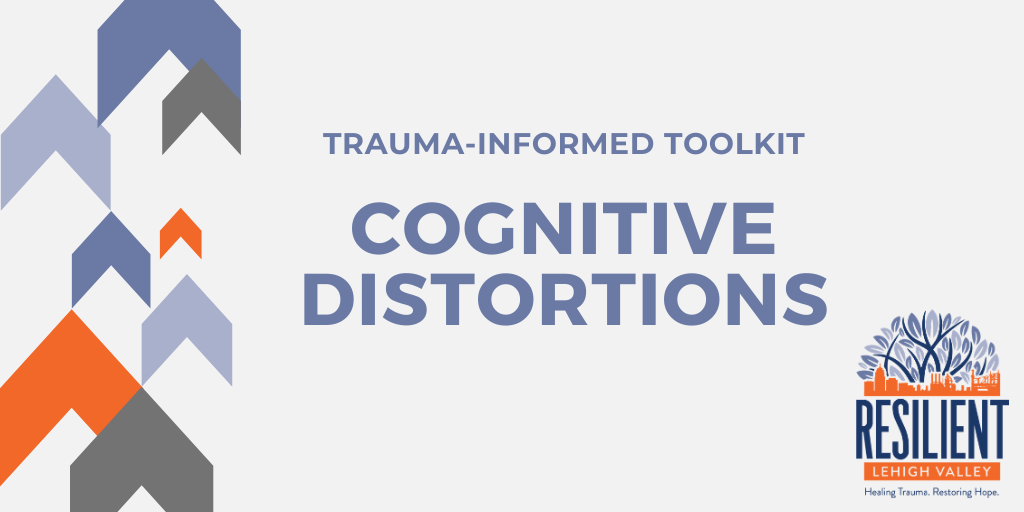RESOURCES
Trauma-Informed Toolkit: Cognitive Distortions
Trauma-Informed Toolkit: Cognitive Distortions
Cognitive distortions are irrational thoughts and beliefs we unknowingly reinforce over time that influence your emotions. Everyone experiences cognitive distortions to some degree, but in their more extreme forms, they can be harmful. Some occasionally stumble into a cognitive distortion while others struggle with them on a long-term basis because they lack the ability to identify and modify these faulty patterns of thinking. These errors in thinking often provoke or exacerbate symptoms of depression. With practice, you can improve your ability to recognize and respond to our distortions. To find common examples of cognitive distortions and other resources on bringing mindfulness into your day, click the button below.
Cognitive Distortions
RELATED RESOURCES
Organizational Self-Assessment: Adoption of Trauma-Informed Care Practice
The Organizational Self-Assessment is designed for organizations interested in improving their policies, procedures, practices, and social and physical...
LEARN MORETrauma-Informed Organizational Toolkit for Homeless Services
The Toolkit offers homeless service providers concrete guidelines for how to modify their practices and policies to ensure...
LEARN MOREEmotional Regulation Plan for Youth in Secondary Grades
Click below to get a copy of our Emotional Regulation plan for youth in Secondary Grades. This emotional...
LEARN MOREEmotional Regulation Plan for Children in Third Through Fifth Grade
Click Below to check out this great resource! It’s a great way to teach kids how to emotionally...
LEARN MOREEmotional Regulation Plan for Pre-Kindergarten through Second Grade
Click below for a detailed Emotional Regulation plan that details guidelines and tips on how to implement this...
LEARN MORETrauma-Informed Toolkit: SEL – Small-Group SEL Facilitation
Social-emotional learning is a great way to build student belonging and community. Check out this toolkit that includes...
LEARN MORE
